New Social Media Al Disclosure Rules All Content Creators Should Look Out For! 🧐 #news #ai
New Social Media AI Disclosure Rules All Content Creators Should Look Out For! 🧐
Over 90% of creators are already utilizing AI regularly, according to recent surveys. Not only that, but brands are encouraging them to embrace these AI tools for their content creation.
In an effort to increase transparency, some influencer-marketing agencies are taking steps to ensure that AI's presence is disclosed in campaigns. Take WPP-owned ad agency Ogilvy, for example. They've introduced a cool initiative by accompanying influencer-marketing campaigns that use virtual or AI-generated influencers with a hashtag: #poweredbyAI and a watermark. Ogilvy is also leading the charge with their "AI Accountability Act," pushing other advertising, PR, and social-media companies to mandate disclosure of AI-generated creators. They're aiming to have platforms introduce a label similar to the "paid partnership" tags we see for sponsored content.
The need for disclosure arises as AI-generated characters become more common and remarkably similar to real people. Ogilvy itself has created an AI-generated version of Bollywood superstar Shah Rukh Khan, and there's also Brazilian virtual creator Lu. Industry insiders argue that as avatars and reality blend, disclosure becomes crucial.
But it's not just AI-generated characters that need disclosure. A survey by influencer-marketing agency Izea revealed that 86% of internet users believe that AI-generated content, in general, should be disclosed. Izea even developed a tool for programmatic labeling and disclosure of AI-generated content, including ChatGPT-generated text.
However, mandating AI disclosure might be a challenge, given the rapid advancement of AI and its widespread integration into content creation. Some creators feel that disclosing AI use is vital to maintain the foundation of trust between creators and their audience. It's all about making informed choices and avoiding any erosion of trust.
When it comes to virtual influencers and characters, disclosure becomes even more critical, especially as it becomes difficult to distinguish between the human element and graphics. Industry insiders emphasize the necessity of disclosure to prevent any deceptive marketing practices.
But regulating AI disclosure and implementing large-scale labeling is no small task. The speed at which AI progresses and its pervasive nature make it a complex challenge. Building legislation around it might be difficult, and industry experts have mixed opinions about its feasibility.
Nonetheless, there are efforts underway. TikTok, Snapchat, Pinterest, YouTube, and Meta are being closely watched to see if they take steps to label AI content. While TikTok, Snapchat, and Pinterest declined to comment, a report showed that TikTok seemed to be developing a system for disclosing AI-generated video. We'll have to wait and see how these platforms address the issue.
In the future, reverse labeling could be an option. Some creators believe that it might be easier to label content that isn't made by AI rather than trying to label all the AI-generated content out there. So, instead of saying "made by AI," watermarks could say "AI-free" or "human-made."
The topic of AI regulation remains open for debate. Prime Minister Rishi Sunak believes that transparency is crucial, and possible regulations could include watermarking, information sharing, reporting and licensing of training runs, and disclosure of training sets.
As the AI landscape evolves, we'll have to find the right balance between technological advancements and ensuring transparency, all while fostering trust between creators and their audience. So, keep an eye out for those AI disclosures and let's make informed choices together!
#News#AI#AIWatermark
-
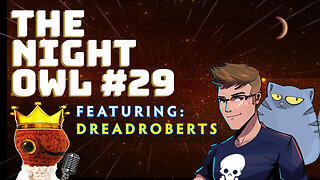 2:04:29
2:04:29
Price of Reason
13 hours agoFuriosa FLOPS! Box Office in CRISIS! Green Lanterns Show Greenlit, GamerGate 2 Update w Dreadroberts
21.8K -
 28:50
28:50
Degenerate Plays
22 hours agoA New Challenger Appears - Call Of Duty Modern Warfare Remastered : Part 1
16.1K1 -
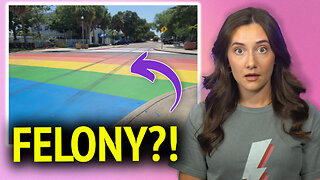 5:16
5:16
Chrissy Clark
10 hours agoVandal Faces FELONY Charge For Doing Donuts On Pride Mural
23.3K48 -
 2:20:02
2:20:02
Desiboylee
13 hours agoWarzone 3.0. OD-LSW 78
27.1K2 -
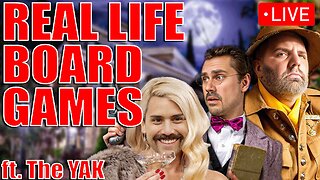 2:01:23
2:01:23
Jerry After Dark
16 hours agoJerry After Dark: Life Size Board Games ft. The Yak
45.9K4 -
 1:34:39
1:34:39
FULL SEND PODCAST
5 days agoDon Lemon vs. Nelk Boys!
70.5K81 -
 1:29:51
1:29:51
Glenn Greenwald
12 hours agoBiden Humiliated as Ukraine Nears Defeat and U.S. Aid Pier in Gaza Fails; Covid Email Scandal Revealed | SYSTEM UPDATE #273
86.5K230 -
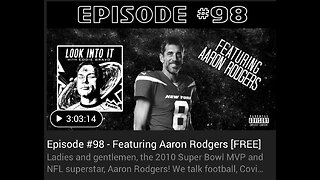 3:03:13
3:03:13
Eddie Bravo
12 hours agoAARON RODGERS on Look Into It with Eddie Bravo episode 98
48.8K18 -
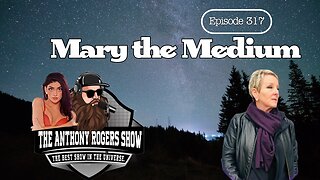 1:40:08
1:40:08
The Anthony Rogers Show
20 hours agoEpisode 317 - Mary the Medium
28K3 -
 2:31:28
2:31:28
WeAreChange
12 hours agoBREAKING: Secret Service Preps for Trump in JAIL – Imprisonment Imminent??
76.6K58